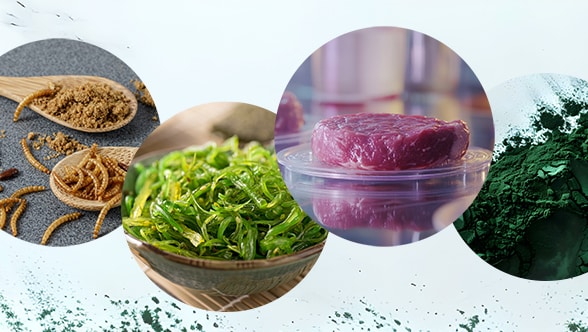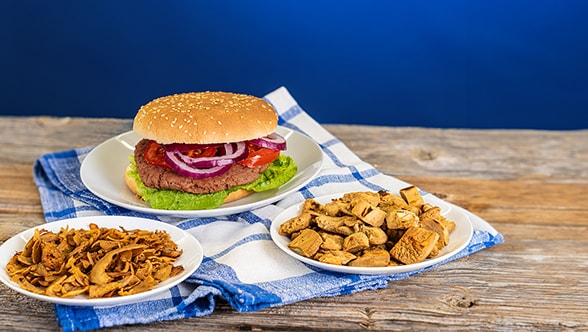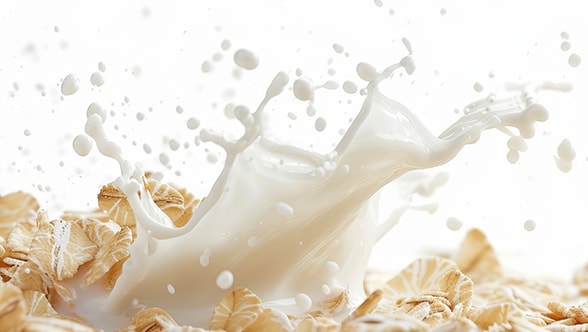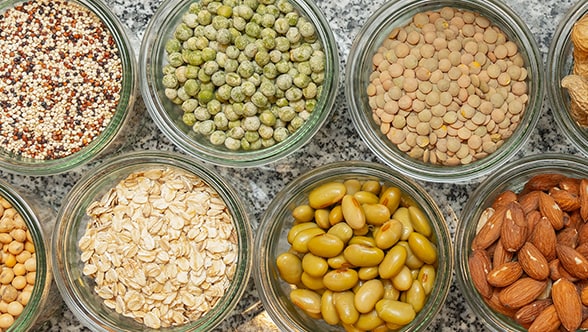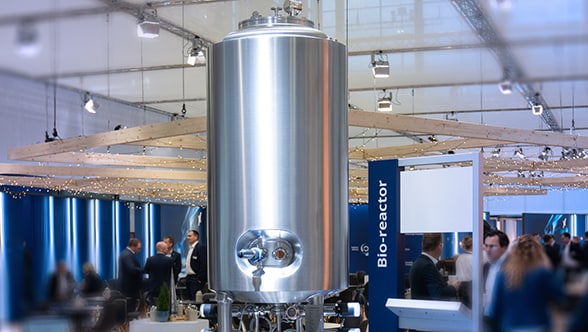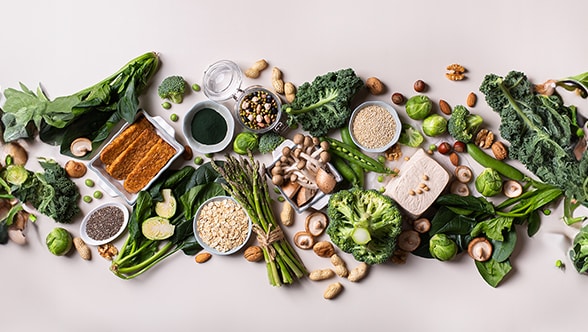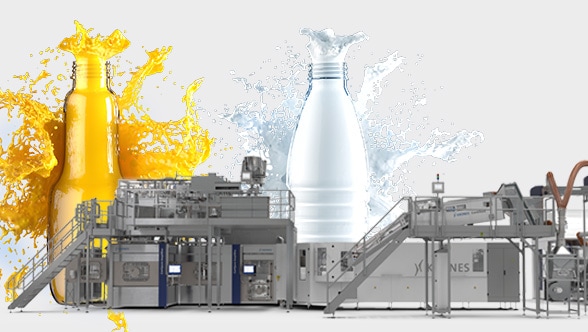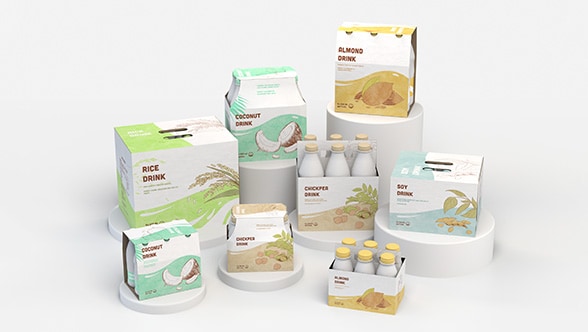Many people have developed a heightened awareness for the influence their eating habits have on the natural environment, the climate and animal welfare. And when you look at the supermarket shelves, you quickly realise that demand for alternatives to meat is steadily rising and manufacturers are responding to this trend. Their target groups, however, are no longer just vegetarians and vegans but also flexitarians, meaning consumers who occasionally eat meat but for a variety of reasons also like to reach for substitute products based on alternative proteins. This goes to show that the trend towards new foods is no longer just a matter for a small niche group.
Alternatives to meat are growing more and more popular around the globe. And we at Krones are doing our part to ensure that the full potential offered by alternative proteins is utilised.
Nutritional choices are changing
Alternative proteins are something that matters not only to consumers but to the political and business communities as well, in view of global food security. Our meat consumption needs to change – and will indeed do so over the next few decades. Why? The world’s population is growing rapidly and will probably have broken the ten-billion barrier by 2050. Needless to say, correspondingly huge amounts of food will be necessary, though animal protein is only conditionally suitable in this context. That is because its conversion rate is bad since half of the world’s crops is used as animal feedstuff. Roughly seven kilograms of grain are required to produce one kilogram of beef whereas only about 1.3 kilograms of arable crops are needed for making one kilogram of a substitute vegan product. That’s why it is imperative to find sustainable and efficient protein sources, with a view to resource economy, to a balanced diet and a sufficiently large supply of food.
According to a study commissioned by the management consulting firm Kearney, the market share of alternative products based on plants or cell cultures will by 2030 have grown to almost one third of the entire meat market. That would correspond to sales of nearly 400 billion dollars. So the market share of alternative protein products could even reach 60 per cent in 2040.
Proteins created by fermentation may be more affordable than animal-based substitute products as early as 2025. Important aspects for consumers are not only the price but also the taste and texture of such products.
Make it big!
That means large-scale production systems are needed for alternative proteins in order to render them affordable enough to constitute a genuine alternative to animal products for a greater number of people. Moving towards industrial production is therefore the next crucial phase. And that is precisely where Krones, one of the world’s leading complete-system vendors for the food and beverage industries, enters the stage: We support food producers in their efforts to scale their projects in the field of alternative proteins to the production output they want to reach. Process technology experts within the Krones Group join forces and combine their accumulated knowledge in order to meet all the requirements posed by a customer in regard to the processes, the equipment and the project concerned. They use not only their own grasp of the processes and markets for that but also proprietary technologies that are optimally aligned with each other. That offers the best possible preconditions for developing customised solutions together.
Detailed knowledge of the process technology used in the food and beverage industries, in the brewing process, for example, is the best precondition for producing alternative proteins on a large scale. That means we can tap into our fund of experience gained in industrial biotechnology and use it for making alternative foods.
 Alexander ScheidelHead of Alternative Food Processing at Steinecker
Alexander ScheidelHead of Alternative Food Processing at Steinecker
Plant-based substitute products like vegan milk drinks made of soy or oats have long been a fixture on our supermarket shelves. What’s relatively new, though, is using technologies like precision fermentation and cell cultivation for food production. The challenges companies are currently facing include the size of the systems available for industrial production, and developing and improving the raw materials and biotechnological processes used.
And what is it that Krones can provide in this field?
From water treatment and thermal product treatment right through to valve technology and dynamic fermentation – the Krones group offers the components and engineering needed and sees the project through from processing to cell harvesting. Downstream equipment for the dry section can be tailormade and integrated to suit each customer’s specific requirements. We have specialists not only for process technology but for aseptics and digitalization solutions as well. Thanks to our own Botec F1 process control system, we can also provide a complex automation package to support your line’s operation. We will likewise be pleased to join forces with you in our product development centres to fine-tune your ideas for new, delicious products – and for a greener future.


